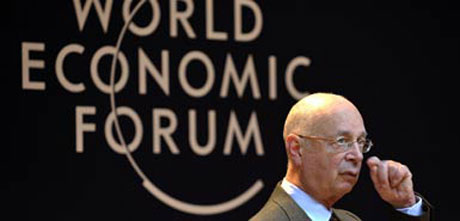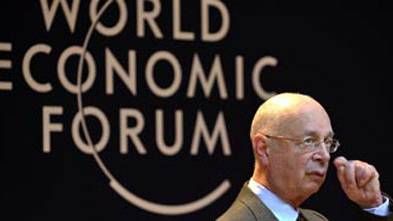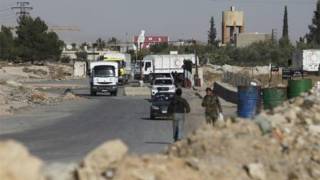'Don't shun bankers: they're part of the solution', says Davos chief
Source: business.timesonline.co.uk

Klaus Schwab, World Economic Forum founder and executive chairman, at the Davos Congress Centre
Bankers who helped to cause the global economic crisis should not be shunned but included in the hunt for a solution, the head of the World Economic Forum said today.
Klaus Schwab, the founder and executive chairman of the World Economic Forum, which opens today in Davos, Switzerland, called for unity and said that executives from troubled financial institutions had their part to play in finding a way out of the current economic crisis.
“Those people, and there are many of those here, have the feeling they are standing at a cliff and they may fall over at any moment,” Mr Schwab said in a speech to mark the opening of the 39th annual forum.
“But those people are not only part of the problem," he said. "They are part of the solution.
"We need a well-functioning financial community, we should not forget. Otherwise, we don’t have a well-functioning economy.”
Senior officers from Citigroup, Bank of America and UBS AG, all of them facing severe financial problems, are among the Davos audience that will mingle this year with more than 40 world leaders.
The leaders include Gordon Brown and other prime ministers: Wen Jiabao, of China, Vladimir Putin, of Russia, Taro Aso, of Japan, Angela Merkel, the German Chancellor, and José Manuel Barroso, the President of the European Union.
Mr Putin is to give the keynote address this evening, even as Russia’s bankers and energy tycoons struggle with debt and plunging oil prices.
Mr Schwab said that the Davos summit was a chance for bankers and politicians to discuss the crises facing the world's economies — caused, he said, by a failure to address the needs of society — and a formula for solving them.
"It's an overlapping of different crises, we have the crisis that was caused by an imbalance in our economies, we have a financial crisis, we have a confidence crisis and above all we have a systems crisis," Mr Schwab said in an interview with the BBC.
"Everyone feels isolated, everyone wants to understand. Bringing the people together, the politicians, business leaders and particularly also experts to sit together and to try to find out what really happened, I think this is exactly this year what Davos is about."
Mr Schwab said that those who were attending Davos needed to focus on identifying the mistakes that had been made and debating how to reset the world's financial systems.
"Without change we will leave a world for our children and our grandchildren that will be horrible ... A reconfirmation of what we have done would be stupid because it would lead us into a new crisis.
"No, we have to rethink. We have to reboot the whole system."
He rejected the idea of completely rewriting the global economic system, however.
He said: "I think a free market economy is still best of all systems, but we have to make sure that this free market economy serves more society, and that is what we failed to a certain extent to do in the last years."
There are many absentees from Davos this year. Bob Diamond, the president of Barclays, the UK bank, pulled out yesterday without giving a reason after a volatile fortnight for the British bank. However, Marcus Agius, the chairman of Barclays, is expected to attend.
John Thain, the former head of Merrill Lynch, who was ousted last week as president of global banking at Bank of America, will not attend.
Mr Thain attended Davos last year, before Merrill Lynch was rescued by Bank of America.
The $50 billion (£35 billion) deal officially completed this month, but Mr Thain resigned from the merged lender only days later after Merrill revealed larger-than-expected losses of $15.3 billion, forcing Bank of America to borrow $20 billion from the US Government.
Other absentees include Vikram Pandit, the chief executive of Citigroup, the embattled US bank, and Richard Fuld, the former chief executive of the collapsed Lehman Brothers Holdings, whose annual lecture at Davos has been cancelled.
Martin Sullivan, the former chief executive of American International Group (AIG), which, until this year, was one of the forum's highest-paying members, will not be at Davos, and Marcel Ospel, who was replaced as chairman of UBS AG in April, will not attend.
At last year's World Economic Forum, Mr Thain talked extensively about the future of the economy and the banking sector.
In a comment that he has probably come to regret, Mr Thain said that Merrill Lynch was not concerned about future losses because it had marked down all the complex financial instruments exposed to distressed debt.
Last January he said: “They’re marked down so low that we have no concerns left about this at all.”
Source: 'Don't shun bankers: they're part of the solution', says Davos chief






















